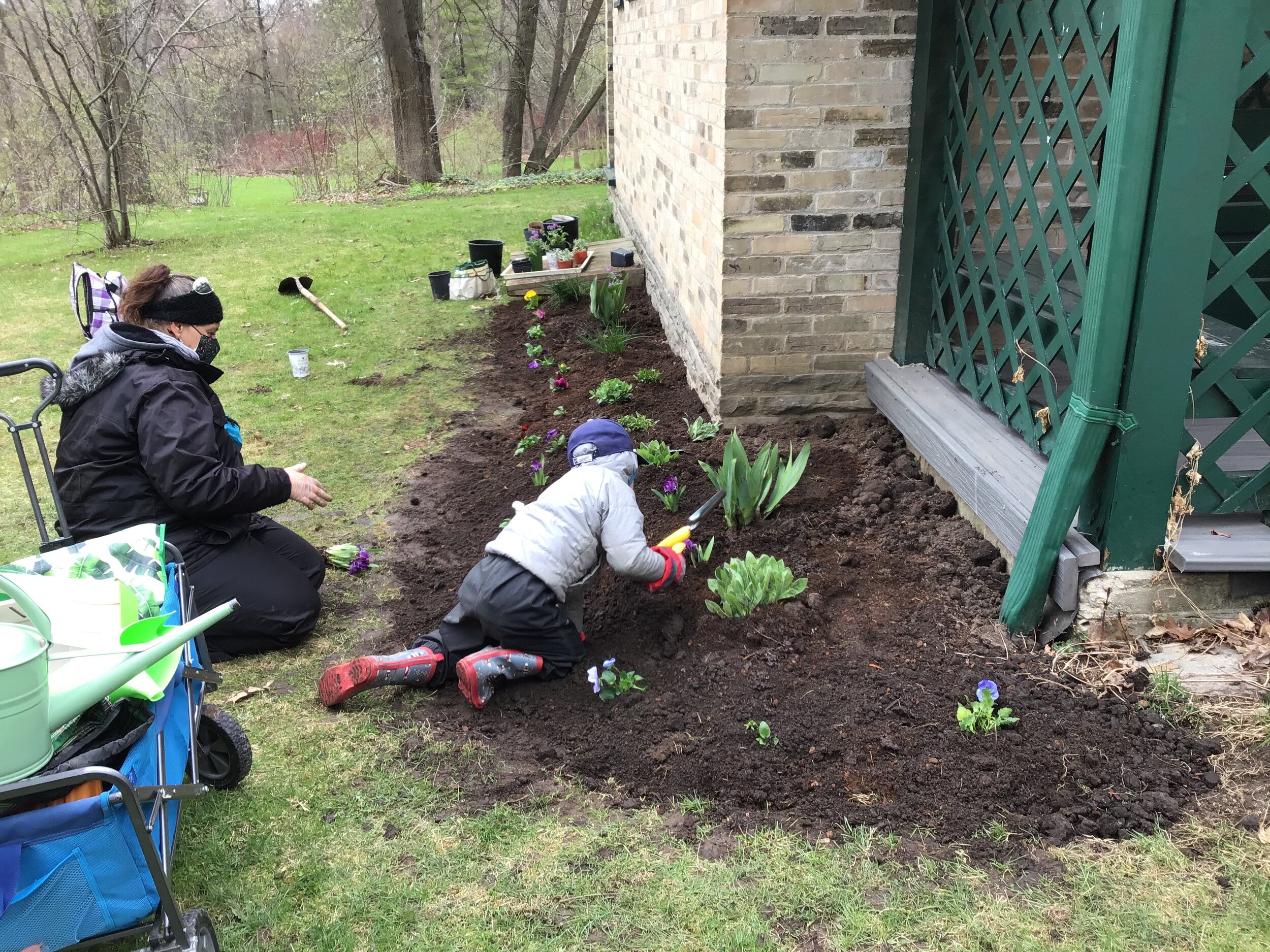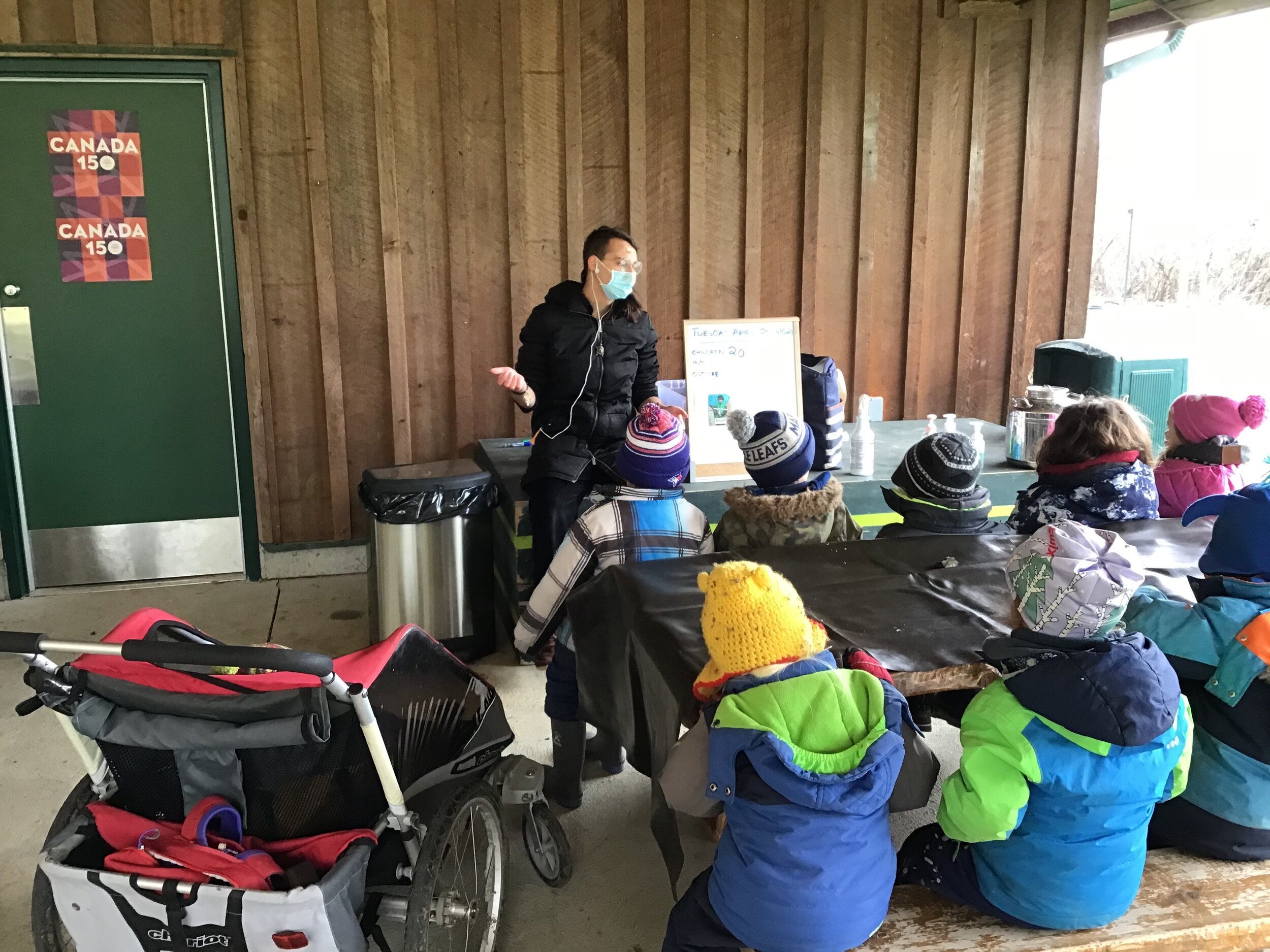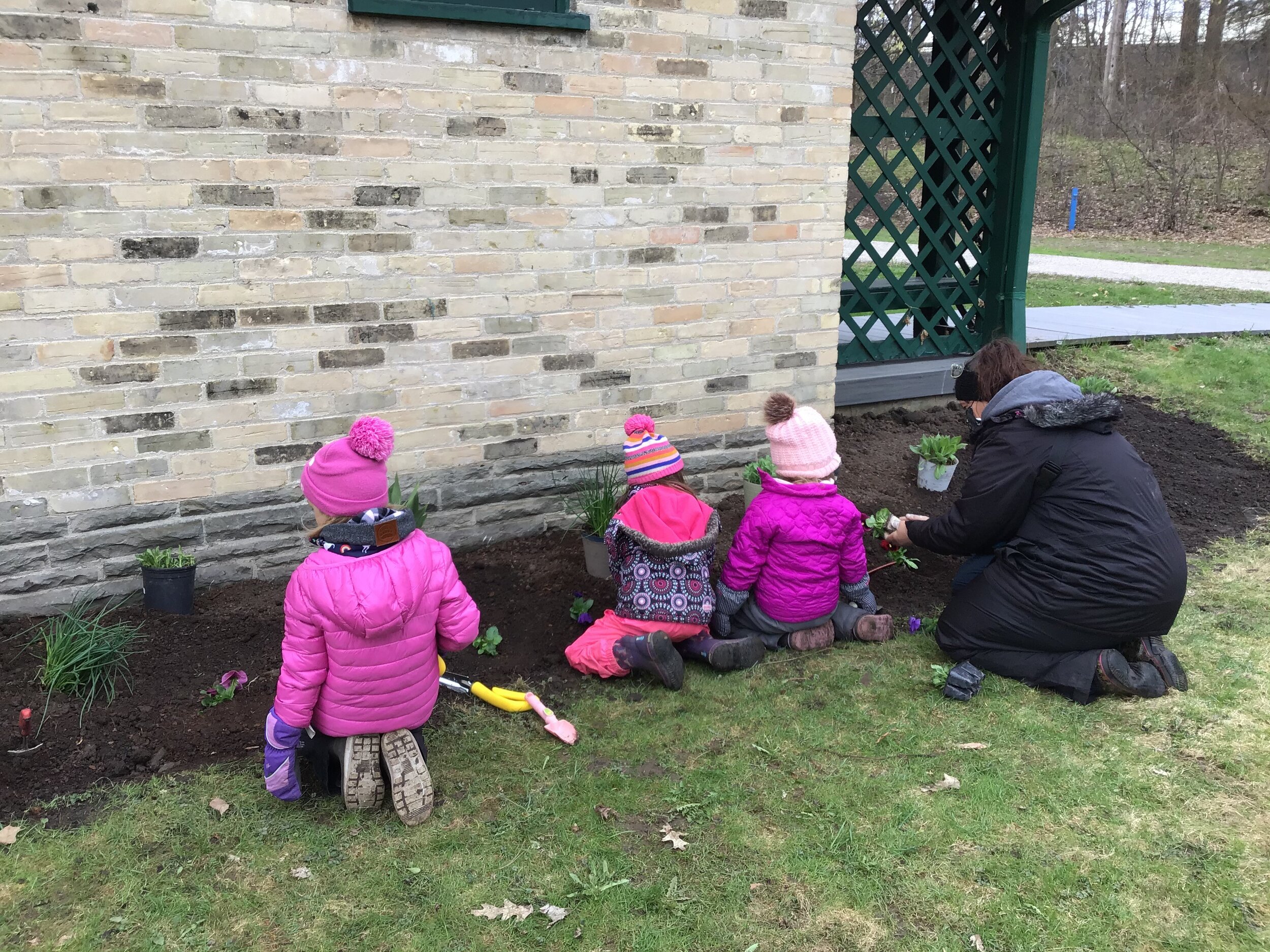“Gardening for The Butterflies and the Bees”
April 20th 2021
Dewe’igan gifted us with a heartwarming territorial acknowledgement, and an engaging poetic conversation, honouring Indigenous heritage.
Ranger Dan (Parks Canada) has been working on creating two Butterfly and Bee Gardens for us as well as a beautiful vegetable garden. Woodside National Historic Site offered us these invitations and we will plant the gardens and nurture the plants as we learn and grow with them. The plants were chosen with insects in mind and once the perennials are established the flowers will bloom in succession throughout the growing seasons to support Bees and Butterflies. Just imagine the learning opportunities ahead of us!
We started the garden with frost-resistant perennials, such as Irises, Dwarf Irises, Pearly Everlastings, Lambs Ears, Pansies, Sedums, and Wind Flowers. We will continue planting seeds, and other species of seedlings as the weather warms.
The children observed the plants with keen interest and tenderness. We looked at plant anatomy, talked about lifecycles of plants, and reflected on the connections among organisms in the soil, among root systems, among plants, and the insects who will be visiting our garden for food. “It will be a bee restaurant!” someone concluded.
We explored working with a variety of trowels, shovels, watering cans, a hose and we formed hands on connections with the soil, discussing what plants need for growth and what our responsibilities are in supporting plant life. We observed the Trilliums, Trout Lilies, May Apples, Black Cohoshes, and many more woodland plants in their natural environments and marveled at their beauty and unique anatomy.
The children were very careful at measuring the required distances among the plants using sticks as measuring devices. It was inspiring to see all the learning emerging as the children formed theories through hands on exploration, shared their extensive previous knowledge and formed hypotheses about what will happen next in our garden as a consequence of weather, growth, time, and other systemic changes.
Hands on sciences and mathematics are present in nature, learning is joyful and engages all the children and educators in the group. Forming a strong emotional connection with plants is a joyful path to science, biology, math, technology, literacy, and emerging research ideas.
We were joyfully awaiting the word of the day in Anishinaabemowin; Dewe’igan shared the words Miishke Minis, Turtle Island with us. Dewe’igan shared the story of Sky Woman and the creation of Turtle Island with the group. The wonderful story connected us to the land, to the animals, the soil, to the plants, and lovingly supported our experiences of the day.
Dewe’igan reminded us of the work of Thomas King. Thomas King in his book, The Truth About Stories: A Native Narrative, shares his perspectives on the power of the origin stories we tell, and how narratives shape our cultures, communities, our relationships to the natural world, and most importantly our relationship to ourselves. A wonderful book to explore for adults to mirror our learning. Listen to Thomas King’s CBC Massey Hall lectures on the power of stories: https://www.youtube.com/watch?v=wzXQoZ6pE-M
If you have a surplus of plants that support Bees and Butterflies, we have a home for them.
E.M.


